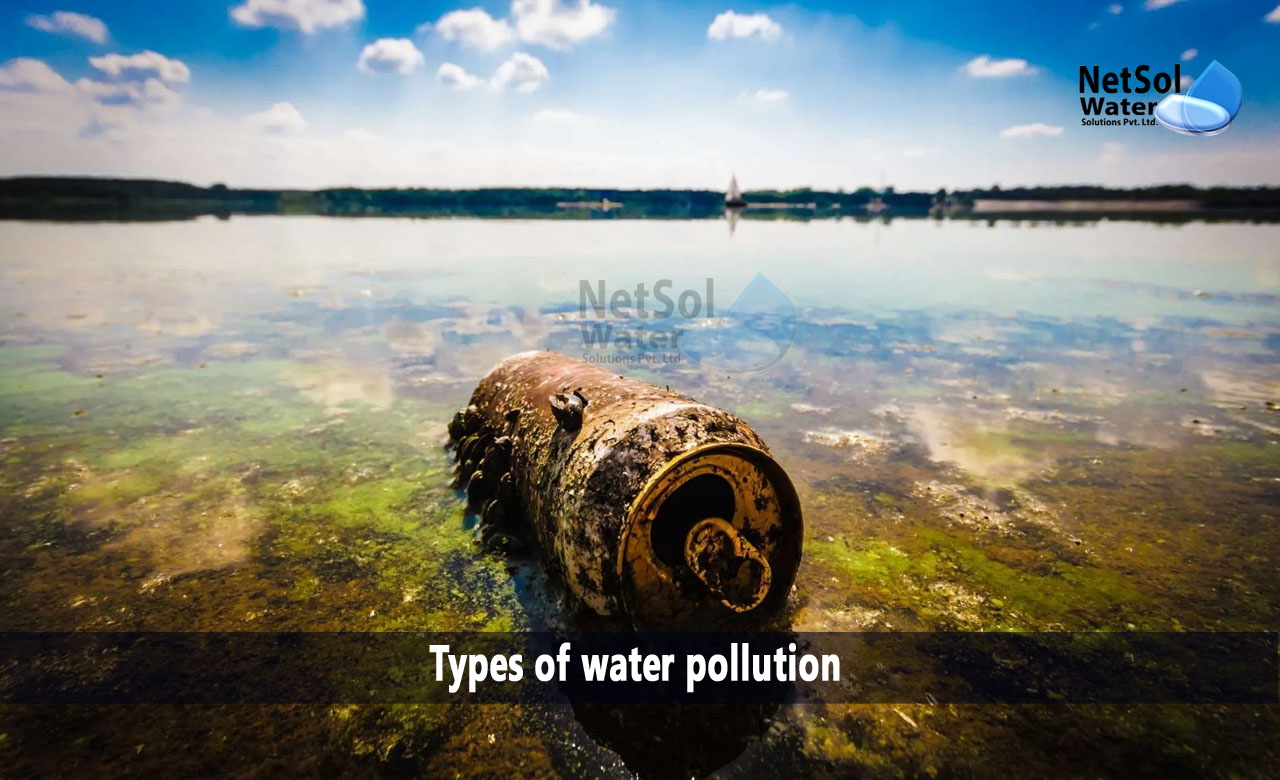How many types of water pollution?
Our rivers, lakes, reservoirs, groundwater, and aquifers are all impacted by water pollution, which is the second most prevalent sort of pollution after polluted air.
It also impacts the seas and oceans, which make up the bulk of our globe. Both direct and indirect applications of contaminants can result in water contamination.
Types of Water Pollution
Many types of water contamination have different origins. Below is a brief list of the various forms of water pollution:
· Groundwater pollution
Agriculture is a significant source of water contamination, especially for groundwater. Fertilizers and pesticides used on crops have the potential to leak into the ground and contaminate underground rivers and waterbeds, putting the quality of groundwater retrieved from wells, boreholes, and other areas for human consumption, in danger.
· Chemical pollution
The fact that chemicals can contaminate both surface and subsurface water sources, make them the most prevalent sort of pollution. Unsurprisingly, agricultural pesticides and fungicides play a big role in chemical contamination, but industrial sites' metals and solvents also play a big role.
· Nutrient pollution
While, nutrients are essential for undersea life to flourish, too much of a good thing can upset the delicate balance of aquatic ecosystems. A high concentration of nutrients found in fertilizers can result in algal blooms in rivers, lakes, and coastal environments, preventing other species from growing and obstructing sunlight.
· Microbiological pollution
In contrast to the bulk of the other water contaminants on this list, microbiological pollution occurs naturally. Water supply contamination by bacteria, protozoa, and viruses can result in cholera and bilharzia, among other illnesses. People are more susceptible to this kind of contamination in places, without proper water treatment plants.
· Pollution due to oxygen-depletion
The reduction of oxygen reserves is another consequence of algae blooms. This implies that anaerobic organisms thrive whereas those that depend on oxygen to survive go extinct. The water becomes even more hazardous for animals due to some anaerobic microbes' ability, to create poisons like ammonia and sulphides.
· Surface water pollution
Any water sources above earth, such as rivers, lakes, seas, and oceans, are considered to be surface water sources. Surface water pollution can be caused naturally, unintentionally, or on purpose.
Monitoring, for instance, is essential in managing natural floods, which can result in poor water quality. Accidental oil spills and careless enterprises that dump trash into water bodies, are also significant contributors.
· Suspended matter
Some pollutants do not dissolve in water because their molecules are too big to combine with them. These include large things like cans and straws. When suspended, they create a coating on the water's surface that blocks oxygen absorption, and adds to pollution caused by oxygen depletion.
Some of the particle pollution may settle at the bottom of the lake, ocean, or river, impacting the life on the bottom. The substance may occasionally include dangerous poisons.
Effects on human beings
Because of the cyclical nature of life, humanity's careless actions usually come back to haunt it. The human family has been impacted by the introduction of toxins to bodies of water in a variety of ways.
A 2017 WHO report states that 2.1 billion people do not have access to clean drinking water. According to reports, 785 million people lacked access to clean drinking water in 2019. Thus, diseases are the most dangerous effects caused due to water pollution.
Conclusion
For all living things, water is a crucial natural resource. All other beneficiaries are impacted by careless activity on the side of humanity. Therefore, it is necessary to safeguard water bodies from deliberate water pollution.
How can we assist?
Water treatment, wastewater treatment, sewage treatment, effluent treatment, along with the physical, chemical, and biological treatment processes, are provided by Netsol Water.
Netsol combines cutting-edge technology with years of experience to handle the most challenging, water treatment or wastewater treatment requirements of a wide range of clients. For further information, contact us at +91 9650608473 or email at enquiry@netsolwater.com



